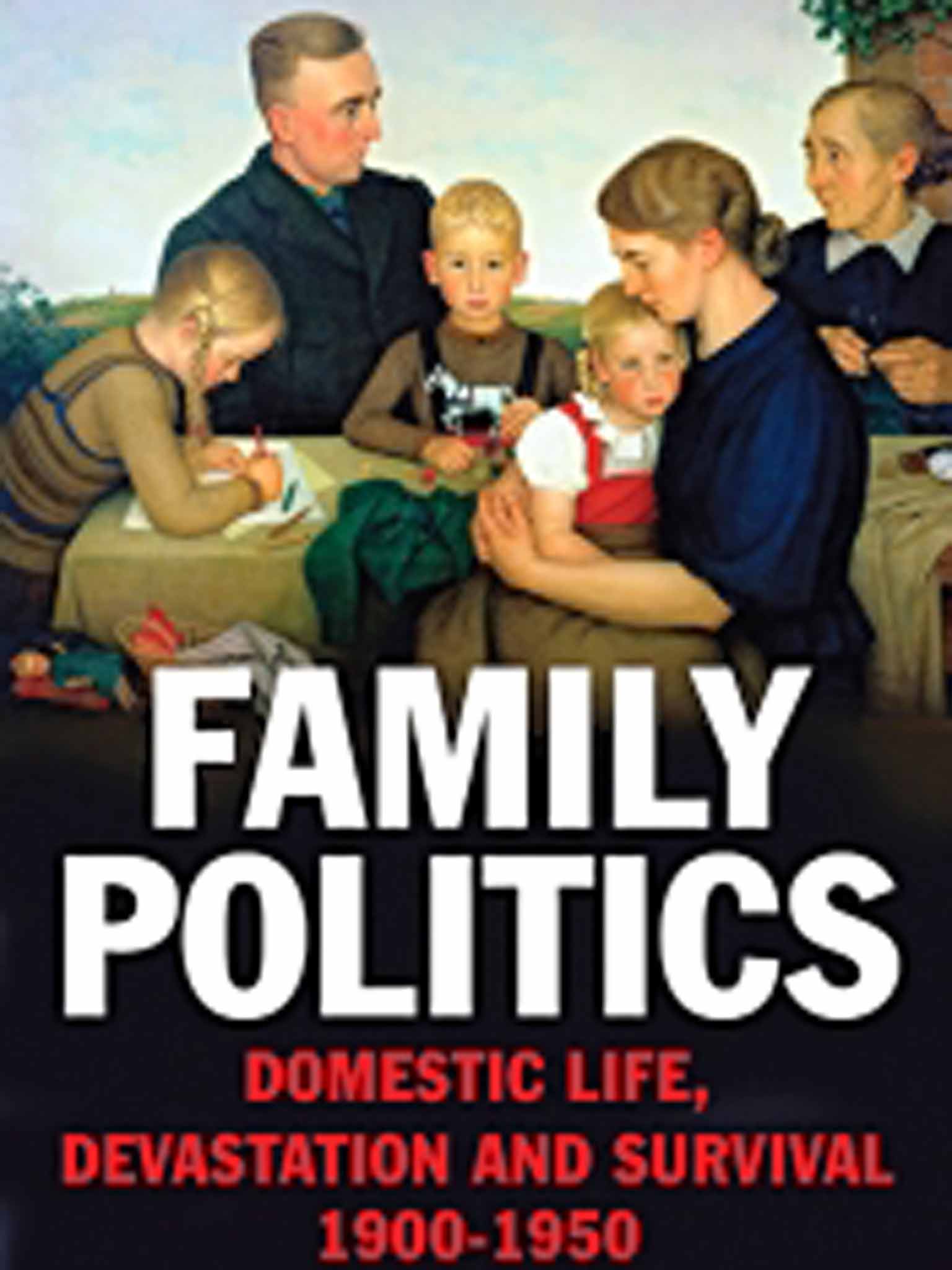Your support helps us to tell the story
From reproductive rights to climate change to Big Tech, The Independent is on the ground when the story is developing. Whether it's investigating the financials of Elon Musk's pro-Trump PAC or producing our latest documentary, 'The A Word', which shines a light on the American women fighting for reproductive rights, we know how important it is to parse out the facts from the messaging.
At such a critical moment in US history, we need reporters on the ground. Your donation allows us to keep sending journalists to speak to both sides of the story.
The Independent is trusted by Americans across the entire political spectrum. And unlike many other quality news outlets, we choose not to lock Americans out of our reporting and analysis with paywalls. We believe quality journalism should be available to everyone, paid for by those who can afford it.
Your support makes all the difference.Families are off-stage in history, a footnote in the lives of the great, if that, so it is refreshing that Paul Ginsborg looks at the upheavals of the first half of the 20th century through the prism of family life. He asks what revolution and dictatorship did to the family, but also looks at the influence of the family on despotic regimes developed in the 1920s and 1930s in Russia, Turkey, Italy, Spain and Germany.
The leaders of these states liked to be seen as the personification of a historical idea, and would not have enjoyed Ginsborg's conclusion that having an absent or unsatisfactory father and anxious, over-protective mother is a necessary familial attribute of the successful dictator's childhood. Their regimes needed families. These five nations all promoted "pro-natalism": the production of as many offspring as possible. In Italy from 1927 there was a tax on celibacy, levied on unmarried men.
Family Politics is full of domestic detail and character studies such as that of the Futurist Filippo Marinetti whose modern view declared the family "discourages and suffocates the development of children, truncates the youth and virility of the father and renders effeminate the adolescent". Then he married and lived in a conventional set-up with wife and their adored three daughters: Victory, Wing and Light.
In Ataturk's Turkey family reform and women's emancipation were essential building blocks in the creation of the new nation state. Ataturk liberated Turkish women from traditional restrictions but he reasserted the power of patriarchy. Families were good, but only when ruled by strong men.
The Russian communist revolutionary, Alexandra Kollontai, was convinced that free sexuality could function only under socialism; the collective had to take priority over intimate relationships. In keeping with this, the Soviets declared the Muslim women of central Asia as a "surrogate proletariat" who were greatly oppressed with their heavy veils; they would rise up and overthrow the patriarchal system. Or perhaps not: women who unveiled were hunted down by kinship gangs and killed.
In Germany the image of Goebbels' family of Aryan children presided over by Magda, the "Reich mother", was initially promoted to lend respectability to what was justly perceived as a party of thugs. Hitler denied Magda a senior role in the Nazi party, she was the symbol of the future they were fighting for. Such an approach was to the Nazis' cost, for when they needed "manpower" during the war, women were ideologically predisposed not to respond.
Full of anecdote, brief biography and observation, Family Politics is readable and informative, if lacking in an overall theoretical framework.

Join our commenting forum
Join thought-provoking conversations, follow other Independent readers and see their replies
Comments